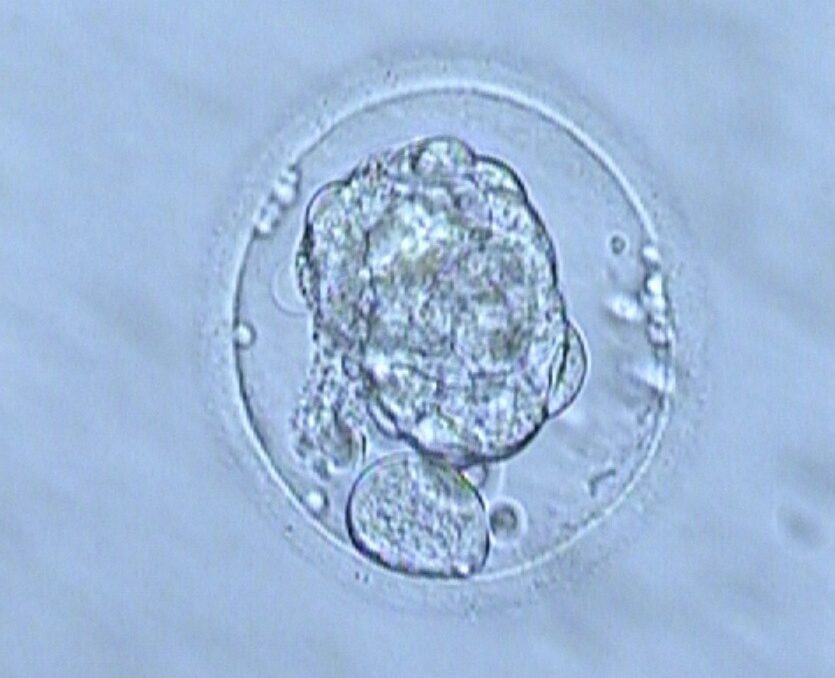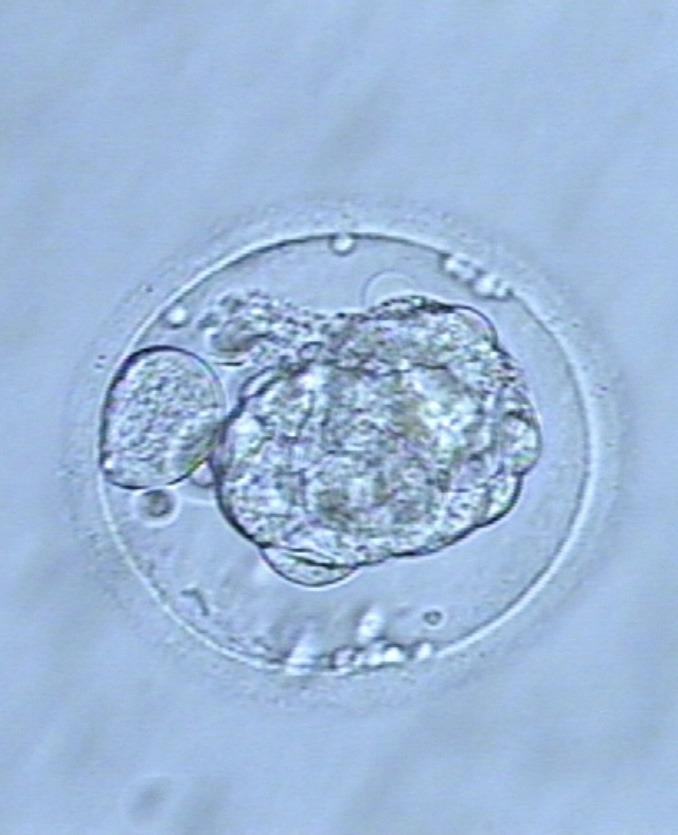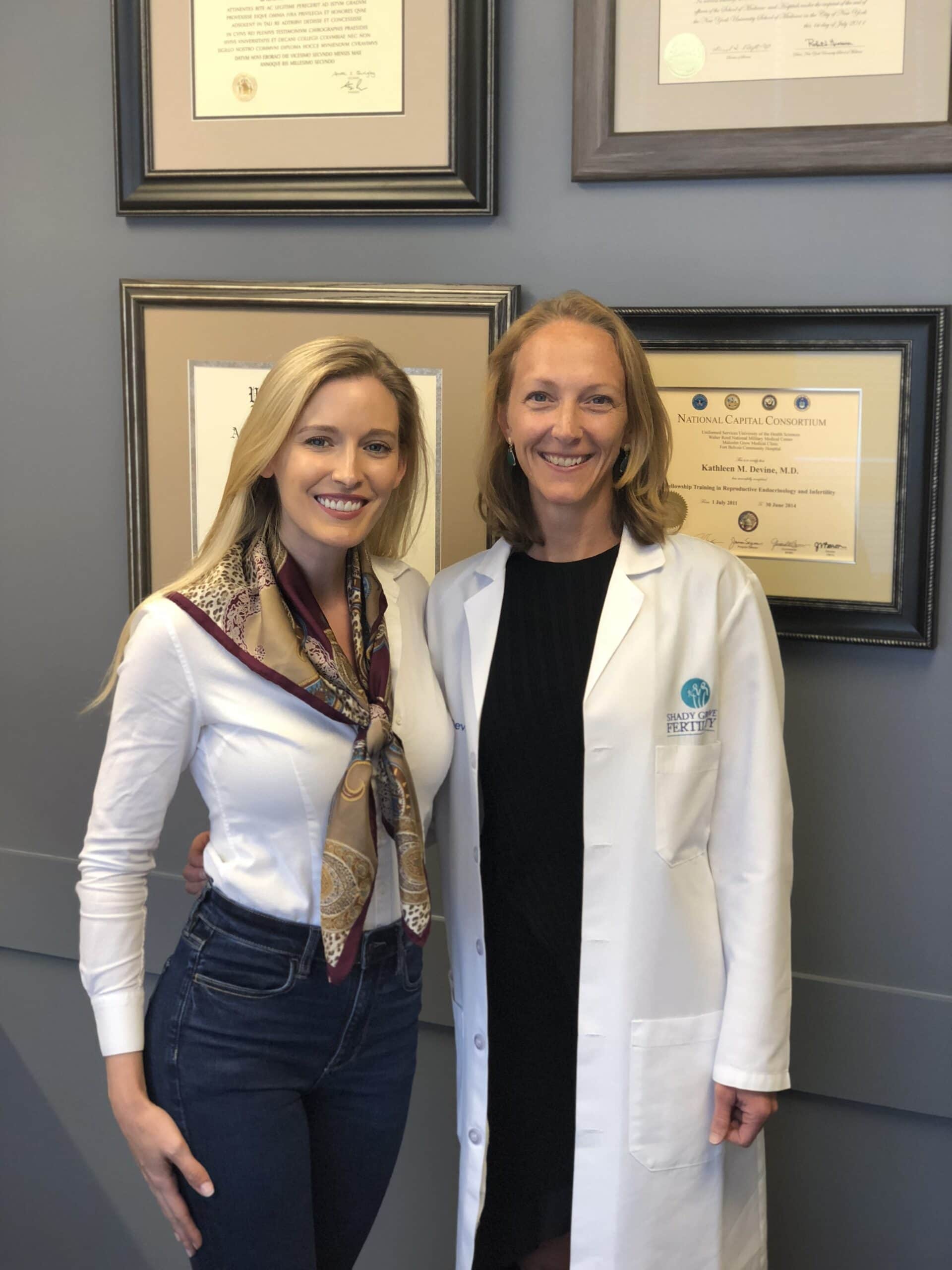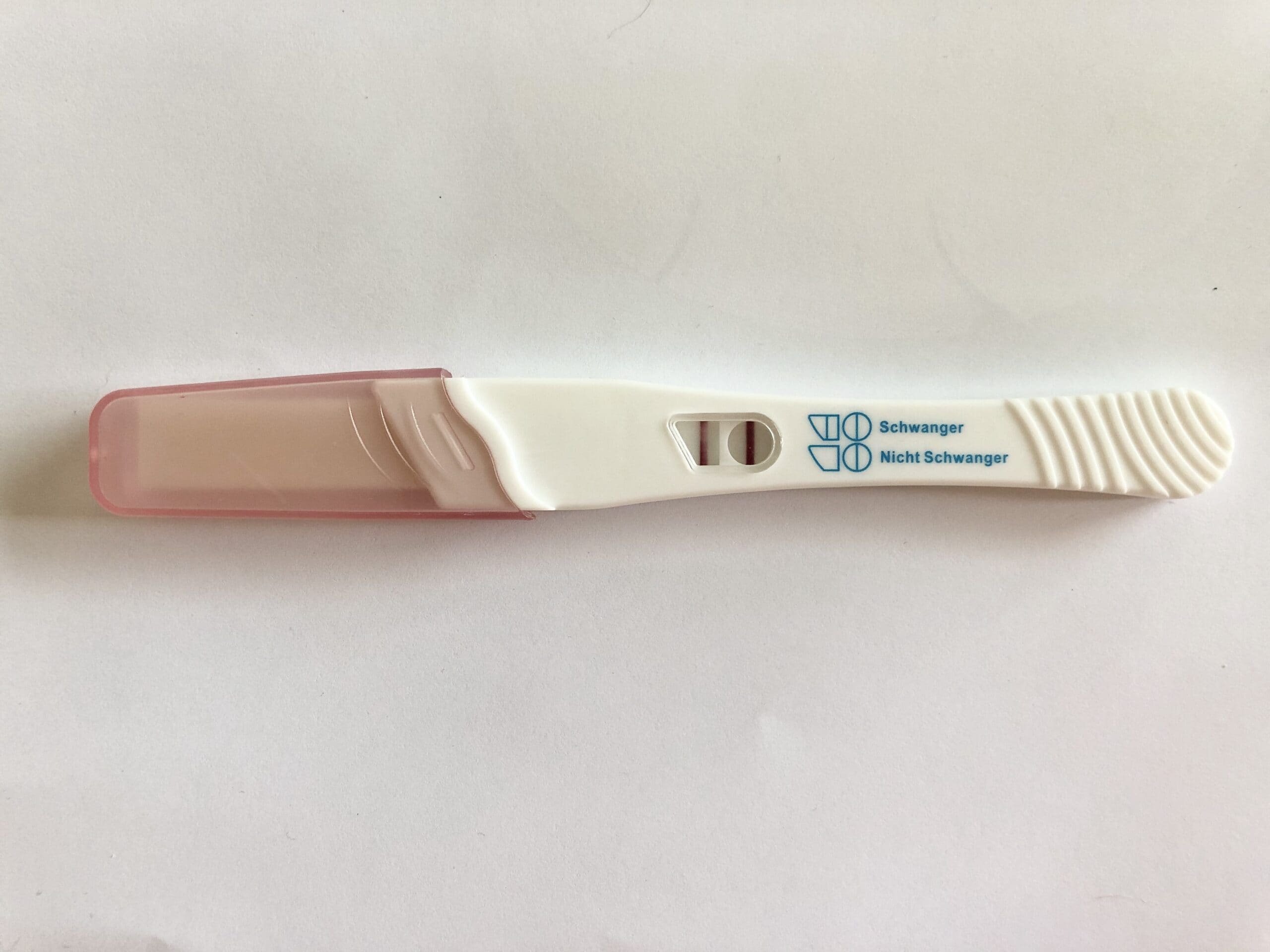

As I write this, I’m 20 weeks pregnant. It’s unbelievable to think I’m almost halfway through my first pregnancy. Time has seemingly flown by in comparison to how long it took to get here.
I am a carrier of a rare X-linked genetic mutation that claimed the lives of three of my uncles and countless others before them. Determined to have this sad legacy end with me, my husband and I underwent the IVF process with Shady Grove Fertility, along with genetic testing on our embryos, to screen out this disease. It seems so simple typing that sentence now but it took a 10-month emotional roller coaster to get here.
As the daughter, granddaughter and niece of women who lost their lives to breast cancer, I’ve always been acutely aware of my family’s health history. Because of this strong hereditary link to breast cancer, I always feared that I, too, may suffer the same fate. Armed with that knowledge, and with the advice of my doctor, I underwent a preventive double mastectomy at 26, just 3 months shy of the age at which my mother was first diagnosed. Having lost my mother to breast cancer when I was 16 years old, I knew what it was like to face spending the rest of my life without my mother. I didn’t want my future children to ever experience that pain. So taking charge of my health in order to be alive for my future partner and future children was my main motivation. But my preventative healthcare journey didn’t end there.
Although I tested negative for a breast cancer gene mutation (which can increase your likelihood of developing breast cancer by upwards of 80%), I has tested positive as a carrier for Wiskott-Aldrich syndrome, a rare X-linked recessive disease, causing autoimmune deficiency and other potentially fatal side effects. This meant that 50% of my male children would have the disease and 50% of my female children would be carriers (like me) and be able to pass the disease on to their future children. For years, I had been counseling women in the breast cancer community with known mutations to consider IVF with PGT (preimplantation genetic testing) as a way to avoid passing on potentially deadly cancer mutations. Now it was my turn to be proactive, this time for the health of my future children.

The process involved two egg retrievals, wherein my fertility specialist, Dr. Kate Devine, prescribed me a series of ovarian stimulation drugs that I had to inject over a 2-3 week period. This caused follicles (tiny egg sacks) in my ovaries to grow and those eggs were them retrieved, fertilized, and the subsequent embryos sent to a lab for genetic testing. Again, typing it seems simple, but it involved injecting myself in the stomach several times a day for weeks in order to grow those eggs, then undergoing surgery with anesthesia to remove them and the worst part, waiting 3 weeks to hear if any of those embryos were healthy. I was devastated when my first round resulted in only one viable embryo. I knew that I wanted a big family – that meant doing it all over again (and hoping for a better outcome). I was one of the lucky ones and my second retrieval yielded 3 more embryos, leaving my husband and I with 4 mutation free potential children. We were thrilled; but the journey didn’t end there. I know had to undergo another procedure to implant the embryo in my uterus and hope that it “stuck.”
Well, 12 days after that transfer, I was greeted with 2 dark red lines on a home pregnancy test, giving me what the IVF community calls a “BFP” or BIG FAT POSITIVE!

We were part of the lucky few who got pregnant on their first try with IVF. I owe that success in large part to my wonderful team of doctors the fact that I did everything possible to ensure that the embryo implanted was as healthy as possible. I felt a sense of pride knowing that before I even met my baby, I had done everything in my power to make sure it had the best chance to succeed in life. It was my first experience “mothering.”
With another 20 weeks and a lifetime ahead of me, I truly believe that my experience with IVF helped prepare me to become a mother. It forces you to be present and deliberate in your choices, to have long term perspective and to put the needs of others before your own. I am so grateful to have had the opportunity to make positive strides towards becoming a mother, particularly during such unprecedented times (Hello, global pandemic). And although it can feel lonely at times without my own mother to guide me, I’m so thankful for the village of other women (including complete strangers on the internet) who have loved and supported my journey along the way. I couldn’t have done it without you.
By Allyn Rose
